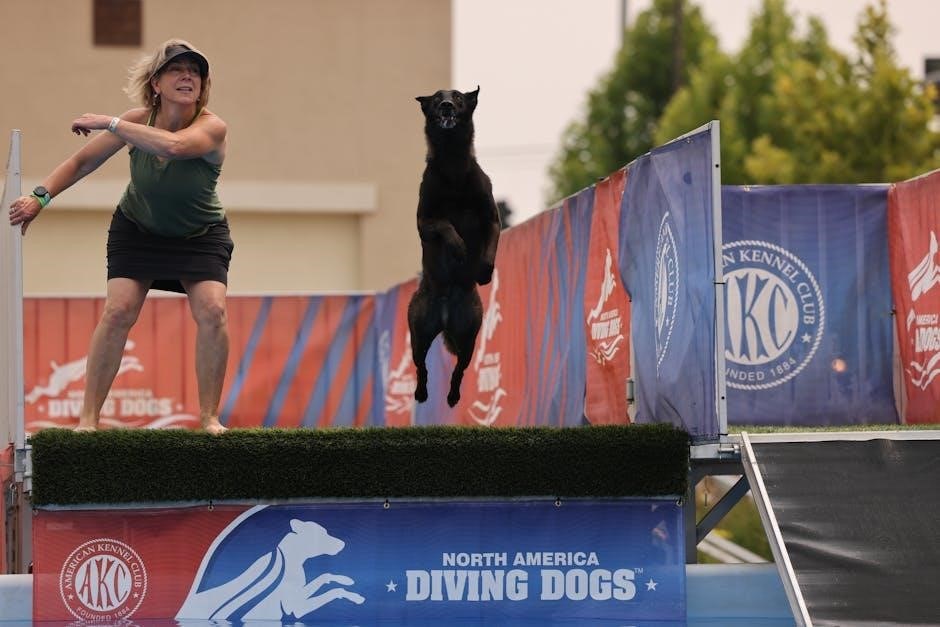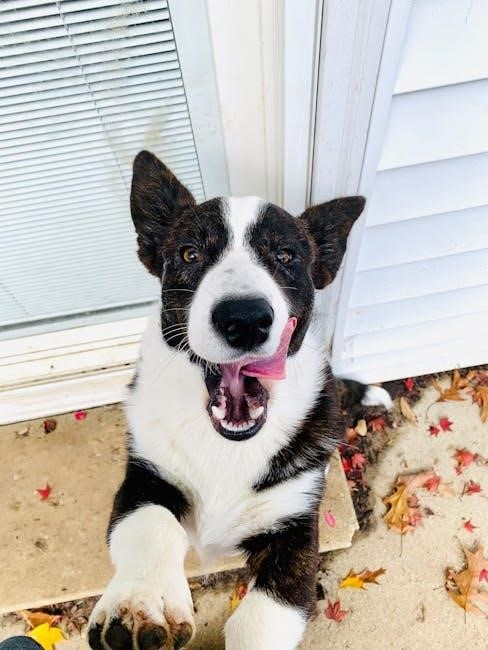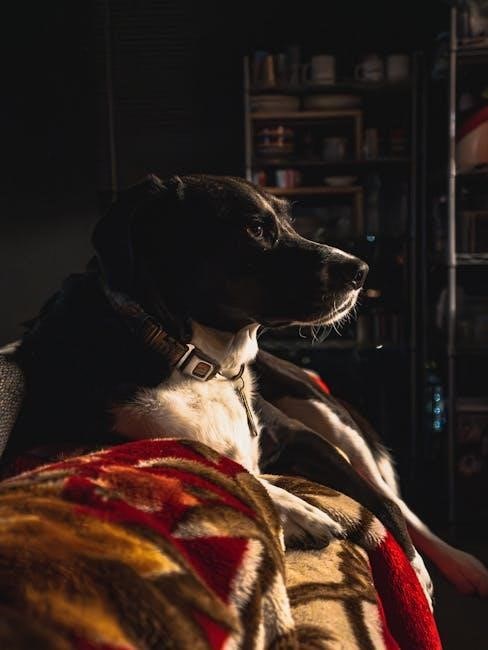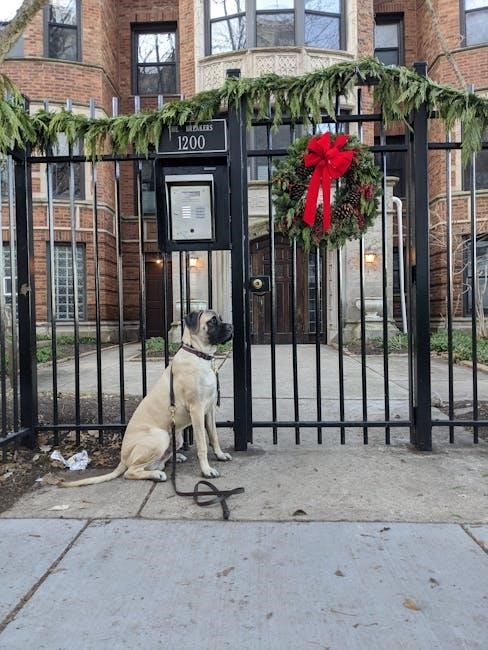In Illinois, legal pets include common household animals like dogs, cats, birds, and fish. Exotic pets, such as hedgehogs and ferrets, are permitted with proper licensing. Service animals, such as trained dogs, are protected under specific laws. Farm animals, like chickens and rabbits, are allowed in certain areas, while wild animals, including big cats and wolves, are strictly prohibited. Understanding these regulations ensures responsible pet ownership and compliance with state laws.
Overview of Pet Laws in Illinois

Pet laws in Illinois are designed to ensure public safety, animal welfare, and environmental protection. The state prohibits owning exotic and wild animals, such as big cats, wolves, and non-native species, due to potential risks. Service animals, like trained dogs, are protected under the ADA and allowed in public spaces. Farm animals, such as chickens and rabbits, are permitted in certain areas but subject to local zoning restrictions. Pet owners must comply with licensing requirements and health regulations to prevent hazards. Violations can result in fines or confiscation of animals. These laws balance the rights of pet owners with the need to maintain community safety and ecological balance.
Importance of Understanding Legal Pet Requirements
Understanding legal pet requirements in Illinois is crucial for responsible ownership and adherence to state laws. Ignorance of regulations can lead to legal consequences, including fines and loss of pets. Knowing which animals are permitted ensures owners avoid prohibited species like exotic and wild animals. Compliance with licensing and health standards protects both pets and communities. Additionally, awareness of laws governing service animals and farm pets helps owners navigate specific rules. Staying informed prevents unintentional violations, fostering a safer environment for humans and animals alike. Familiarity with these requirements also supports conservation efforts by discouraging illegal pet trade and protecting native ecosystems.

Exotic Pets in Illinois
Exotic pets in Illinois are permitted with proper licensing and adherence to state regulations. Species like hedgehogs and ferrets are allowed, while others require special permits.
Legal Exotic Pets in Illinois
In Illinois, certain exotic pets are permitted as long as they meet specific criteria. Hedgehogs, ferrets, and some reptiles are considered legal exotic pets. These animals require proper care and housing. Licensing and permits may be necessary, depending on the species. Owners must ensure their exotic pets do not pose a threat to public health or safety. Big cats, wolves, and non-native canines are prohibited. The Illinois Department of Agriculture regulates exotic pet ownership to maintain ecological balance and prevent risks to native wildlife. It is essential to consult local authorities for detailed information on legal exotic pets and their care requirements.
Prohibited Exotic Pets in Illinois
In Illinois, certain exotic animals are prohibited due to potential risks to public safety and ecosystems. Big cats, such as lions, leopards, and jaguars, are banned. Wolves, wild canines, and non-human primates are also prohibited. Additionally, venomous snakes and other dangerous reptiles are restricted. The state prohibits exotic pets that are deemed invasive or threaten native wildlife. Illinois law enforcement strictly enforces these regulations to protect both residents and the environment. Violating these laws can result in penalties, including fines and confiscation of the animal. It is crucial to familiarize oneself with local and state regulations before considering exotic pets.
Licensing Requirements for Exotic Pets
In Illinois, exotic pets require specific licensing to ensure public safety and animal welfare. Owners must obtain permits from the Illinois Department of Agriculture or local authorities. The licensing process involves proving the animal is legally acquired and housed in appropriate conditions. Certain exotic pets, like hedgehogs and ferrets, may require less stringent permits, while others, such as exotic birds or reptiles, need specialized licenses. Additionally, some animals may require health certificates or proof of vaccination. Local ordinances may impose further restrictions, so owners must check with both state and local authorities. Licensing ensures compliance with regulations and helps prevent the introduction of invasive species or public health risks.
Prohibited Animals in Illinois
Illinois prohibits keeping certain animals as pets, including lions, leopards, jaguars, wolves, and venomous snakes. These restrictions aim to protect public safety and the environment.

Wild Animals Prohibited as Pets
In Illinois, numerous wild animals are prohibited as pets to safeguard public health and ecological balance. This includes predators like lions, leopards, and wolves, which pose significant threats to human safety. Additionally, non-native species such as Eurasian ruffe and rusty crayfish are banned to prevent environmental disruption. Venomous snakes and certain bird species are also restricted. These prohibitions are enforced by state wildlife agencies and aim to protect both residents and natural ecosystems from potential harm caused by exotic or dangerous animals kept in captivity. Violations can result in penalties, emphasizing the importance of adhering to these regulations.
Big Cats and Other Dangerous Species
In Illinois, big cats such as lions, tigers, leopards, and jaguars are strictly prohibited as pets due to their inherent danger and potential threat to human life. These animals require specialized care and housing that cannot be replicated in a domestic setting, making them unsuitable for private ownership. Additionally, other dangerous species, including cheetahs, pumas, and lynx, are also banned. The state enforces these restrictions to protect both residents and the animals themselves from risks associated with captivity. Penalties for violating these laws can be severe, reflecting the seriousness of the potential harm these animals pose. This ensures public safety and prevents the exploitation of wild creatures for personal use.

Penalties for Keeping Prohibited Pets
In Illinois, keeping prohibited pets, such as big cats or exotic wildlife, can result in significant legal consequences. Violators may face fines ranging from $500 to $1,000 and potential imprisonment for up to six months. Additionally, authorities may seize the prohibited animal, and owners may be required to surrender the animal permanently. Repeat offenses can lead to harsher penalties, including increased fines and longer jail sentences. Illinois law also allows for civil liability if a prohibited pet causes injury or property damage. These penalties are enforced to protect public safety and prevent the risks associated with keeping dangerous or exotic animals in inappropriate settings. Compliance with state regulations is essential to avoid legal repercussions and ensure animal welfare.

Service and Assistance Animals in Illinois
Service and assistance animals in Illinois are protected under specific laws, ensuring their role in aiding individuals with disabilities. These animals have defined legal protections and rights.
Definition and Legal Status
Service and assistance animals in Illinois are defined as animals trained to perform specific tasks for individuals with disabilities. Under the Americans with Disabilities Act (ADA), service animals are primarily dogs, though miniature horses are also recognized. Assistance animals, including emotional support animals, are protected under different laws. These animals have legal protections in public spaces, housing, and transportation. Illinois state laws reinforce federal regulations, ensuring these animals are treated with dignity and respect. Their legal status is crucial for maintaining the rights of individuals with disabilities, allowing them to live independently and participate fully in society. Proper documentation and training often determine their legal recognition and protections.
Rights of Service Animal Owners
Service animal owners in Illinois are granted specific rights under federal and state laws. The Americans with Disabilities Act (ADA) ensures that service animals, primarily dogs and miniature horses, are allowed in all public spaces, including restaurants, stores, hotels, and public transportation. Businesses cannot deny access or charge extra fees for service animals. Additionally, the Fair Housing Act protects service animal owners by requiring housing providers to make reasonable accommodations, such as allowing service animals in housing units without pet deposits. Emotional support animals also receive legal protections under Illinois law. These rights aim to ensure equal access and opportunities for individuals with disabilities, fostering independence and inclusivity in daily life.

Responsibilities of Service Animal Owners
Service animal owners in Illinois must ensure their animals are properly trained and vaccinated. Under the ADA, service animals must be under control in public spaces, either on a leash or via voice commands. Owners are responsible for their animal’s behavior and any damages caused. They must provide proof of vaccination if requested. Additionally, owners are expected to respect public access rules and not allow their animals to disrupt businesses or services. Illinois law also requires owners to maintain documentation of their animal’s training if needed. By fulfilling these responsibilities, owners help uphold the integrity of service animal laws and ensure public safety and accessibility for all individuals with disabilities.

Farm Animals as Pets in Illinois
Farm animals like chickens, rabbits, and ducks are permitted as pets in Illinois, but restrictions apply based on location and type. Owners must ensure proper care and adherence to local regulations to maintain responsible ownership and prevent nuisances.
Permitted Farm Animals as Pets
In Illinois, certain farm animals are permitted as pets, including chickens, rabbits, ducks, and goats, under specific regulations. Ownership is allowed in both rural and urban areas, but local ordinances may apply. For example, chickens are popular backyard pets, but the number and housing requirements must comply with local zoning laws. Rabbits and ducks are also common choices, requiring proper enclosures to ensure their well-being. Goats, while allowed, may need additional permits depending on the municipality. Responsible ownership involves providing adequate housing, food, and care, as well as adhering to health standards. This balance ensures both animal welfare and community harmony, making farm animals a viable and rewarding pet option in Illinois.
Restrictions on Keeping Farm Animals

Keeping farm animals as pets in Illinois comes with specific restrictions to ensure public safety and animal welfare. Zoning laws often dictate where farm animals can be kept, with many urban areas limiting or prohibiting certain species. For instance, larger animals like cows or pigs may require a minimum acreage or special permits. Noise and odor regulations also apply, particularly in residential neighborhoods. Additionally, health codes mandate proper sanitation and housing standards to prevent disease transmission. Some municipalities may restrict the number of animals per property or require liability insurance. These restrictions vary by location, so it’s essential to check local ordinances before considering farm animals as pets in Illinois.
Zoning Laws and Farm Animals
Zoning laws in Illinois play a crucial role in regulating where farm animals can be kept as pets. These laws vary by municipality but generally restrict farm animals in urban and suburban areas. Residential zones often prohibit larger livestock, such as cows or pigs, due to noise, odor, and space concerns. Smaller farm animals, like chickens or rabbits, may be allowed in specific zones with permits. Minimum lot sizes and setbacks from property lines are common requirements. Zoning laws aim to balance agricultural practices with residential needs, ensuring public safety and property value maintenance. Checking local zoning ordinances is essential before keeping farm animals, as violations can result in fines or legal action.
Wild Animals as Pets in Illinois
In Illinois, keeping wild animals as pets is heavily regulated to protect public safety and wildlife conservation. Most wild species, including big cats, wolves, and certain fish, are prohibited due to potential risks and ecological impacts. Permits are rarely issued, and only for specific, non-threatening species. The state prioritizes native wildlife conservation and maintains strict laws to prevent the introduction of invasive or dangerous species. Understanding these regulations is crucial for anyone considering unconventional pets in Illinois.

Prohibited Wild Animals as Pets
In Illinois, numerous wild animals are prohibited as pets to ensure public safety and wildlife conservation. Big cats, such as lions, leopards, cheetahs, jaguars, bobcats, pumas, lynx, and ocelots, are strictly banned. Additionally, wild canines like wolves and non-native canidae species are not permitted. Non-human primates are also prohibited due to health and safety risks. Certain fish and aquatic species, such as invasive carp, are restricted to protect ecosystems. The Illinois Wildlife Code outlines these prohibitions, emphasizing the importance of preserving native species and preventing potential threats to human well-being. Keeping these animals as pets is illegal without special permits, which are rarely issued.
Special Permits for Wild Animals
In Illinois, special permits are required for certain wild animals kept in captivity, though these permits are rare and tightly regulated. The Illinois Department of Natural Resources (IDNR) issues permits for specific purposes like education, research, or conservation. Zoos and accredited wildlife sanctuaries often obtain these permits to house wild animals such as bears or wolves. Private individuals may apply, but must meet strict criteria, including specialized enclosures and proof of expertise in animal care. Permits are typically denied for animals deemed dangerous or invasive, ensuring public safety and ecological balance. The permitting process involves rigorous inspections and annual renewals, emphasizing accountability and adherence to state regulations. This system aims to protect both humans and wildlife while allowing limited exceptions for legitimate purposes.
Conservation Efforts and Pet Ownership
Conservation efforts in Illinois emphasize the importance of responsible pet ownership to protect native wildlife and ecosystems; Keeping invasive or non-native species as pets can disrupt local biodiversity, leading to ecological harm. For example, exotic pets like Asian carp and rusty crayfish are prohibited due to their potential to devastate native habitats. Similarly, releasing non-native pets into the wild is illegal and environmentally damaging. Illinois encourages pet owners to choose species native to the region and to support conservation by reporting illegal wildlife trade. By aligning pet ownership with conservation goals, residents can help preserve the state’s natural balance while enjoying their pets responsibly.
Responsible pet ownership in Illinois requires adherence to legal guidelines, ensuring the well-being of both pets and communities while fostering a harmonious relationship with local wildlife.
In Illinois, legal pet requirements vary based on the type of animal. Common household pets like dogs, cats, and birds are generally permitted, while exotic animals, such as certain reptiles and mammals, require special licenses. Service animals, including trained dogs, are protected under the ADA and Illinois state laws. Farm animals, like chickens and rabbits, are allowed in specific residential areas, but zoning laws may restrict their presence. Wild animals, including big cats and wolves, are prohibited as pets due to safety and conservation concerns. Owners must ensure their pets are vaccinated, licensed, and do not pose a public health risk. Compliance with local ordinances and state regulations is essential for responsible pet ownership in Illinois.
Future Trends in Pet Ownership Laws
Future trends in Illinois pet ownership laws may focus on stricter regulations for exotic pets, such as requiring specialized licenses and enhanced enclosure standards. Service animal definitions could expand to include more types of assistance animals, aligning with federal ADA guidelines. Mandatory microchipping for pets may become more widespread to improve identification and reunification processes. Zoning laws could tighten restrictions on farm animals in urban areas, while conservation efforts may lead to bans on owning wild animals, even with permits. Public health concerns, such as disease transmission, could prompt stricter vaccination and health certification requirements. These changes aim to balance animal welfare, public safety, and environmental conservation, shaping the future of pet ownership in Illinois.
